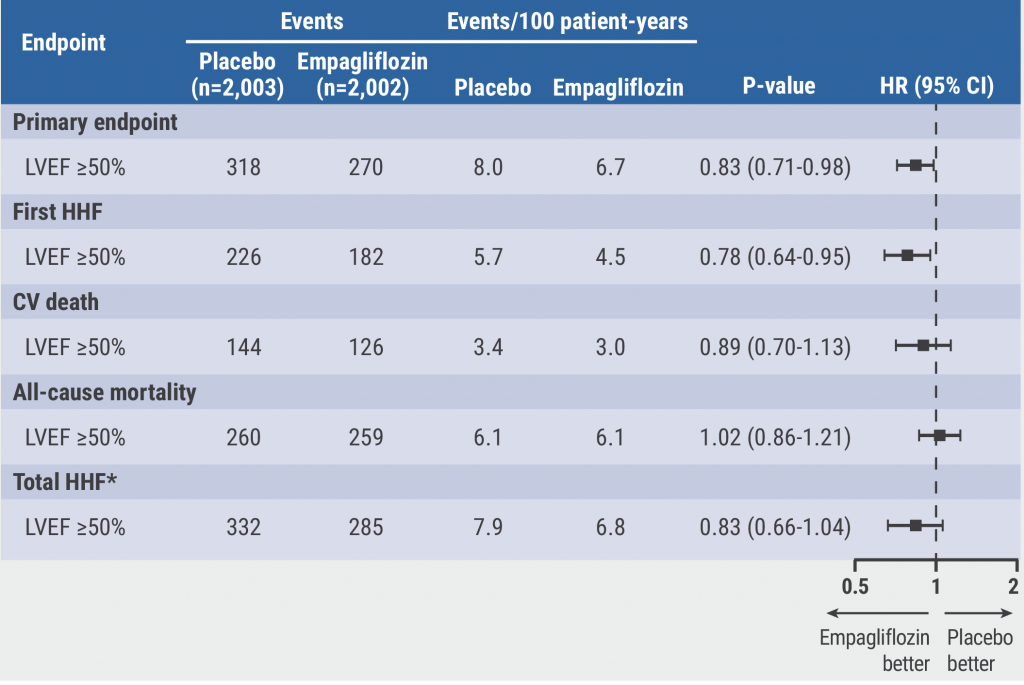“Antiplatelet therapy is guideline-recommended after CABG in patients with acute coronary syndrome,” explained Dr Qiang Zhao (Shanghai Jiao Tong University, China) [1]. “However, there is less evidence on the effect of antiplatelet therapies in patients with chronic coronary syndrome.” The randomised, multicentre, open-label, phase 4 DACAB trial (NCT02201771) showed an improvement in vein graft patency in patients who received ticagrelor (90 mg twice daily) plus aspirin (100 mg once daily; n=168) compared with either one of these therapies alone (n=166 each arm), 1 year after CABG [2].
The current follow-up extension of this trial, DACAB-FE (NCT03987373), assessed the 5-year outcomes of the study population [1]. The 5-year post-CABG follow-up extension was completed by 477 participants. The primary outcome was the incidence of major adverse cardiac events (MACE)-4 (i.e. death, myocardial infarction, stroke, repeated revascularisation). Silent myocardial infarctions were included.
After 5 years, the incidence of MACE-4 was significantly reduced in participants receiving the combination therapy versus those who received aspirin alone (HR 0.63; P=0.03) or ticagrelor alone (HR 0.64; P=0.03). A landmark analysis, separating the effect of 0–12 months post-CABG from 12–60 months post-CABG, demonstrated that the long-term effect was largely a maintained effect of the first post-operative year. The secondary MACE-5 and MACE-3 outcome measures displayed similar effectiveness of the aspirin plus ticagrelor regimen.
Considering the components of MACE-4, no significant differences were observed between treatment conditions for the time to all-cause death and cardiovascular death. In contrast, myocardial infarctions were reduced in the combination therapy arm versus the aspirin monotherapy arm (HR 0.49; P=0.02) and the ticagrelor monotherapy arm (HR 0.43; P=0.01). Participants in the combination group had a decreased risk of stroke compared with participants receiving aspirin alone (HR 0.38; P=0.05). However, ticagrelor plus aspirin was not associated with a significant reduction in the risk of stroke compared with ticagrelor alone (HR 0.83; P=0.75). The time to repeat revascularisation and hospitalisation for unstable angina did not display benefits of the combination regimen over the monotherapies. Additional data on the safety of this regimen will be needed to assess the overall risk-benefit of this approach.
- Zhao Q, et al. Five-Year Clinical Outcomes After Ticagrelor Plus Aspirin, Ticagrelor Alone, or Aspirin Alone After Coronary Artery Bypass Grafting: Follow-Up Extension of the DACAB Trial. FS06, AHA Scientific Sessions 2021, 13–15 November.
- Zhao Q, et al. JAMA. 2018;319(16):1677–1686.
Copyright ©2021 Medicom Medical Publishers
Posted on
Previous Article
« Early surgery outperforms conservative management in asymptomatic severe aortic stenosis Next Article
COVID-19 mRNA vaccination benefits outweigh the risk for myocarditis »
« Early surgery outperforms conservative management in asymptomatic severe aortic stenosis Next Article
COVID-19 mRNA vaccination benefits outweigh the risk for myocarditis »
Related Articles

January 14, 2022
DREAM-HF: MPC therapy for HFrEF did not meet primary endpoint

November 30, 2021
AHA 2021 Highlights Podcast
© 2024 Medicom Medical Publishers. All rights reserved. Terms and Conditions | Privacy Policy
HEAD OFFICE
Laarderhoogtweg 25
1101 EB Amsterdam
The Netherlands
T: +31 85 4012 560
E: publishers@medicom-publishers.com

